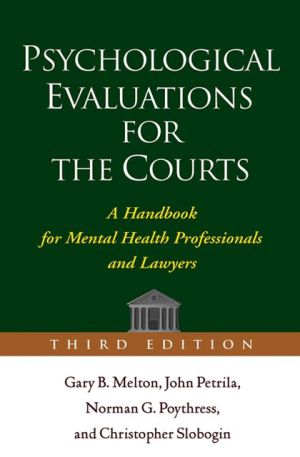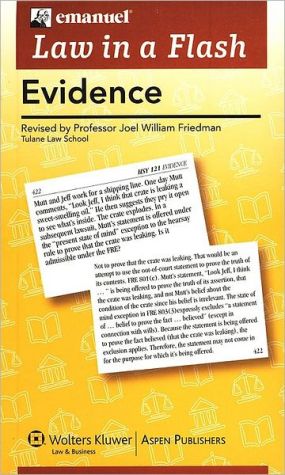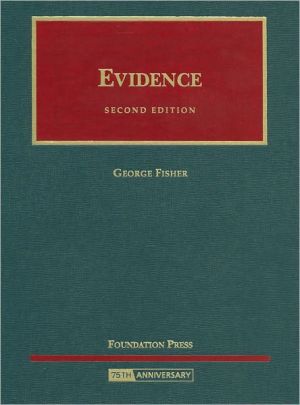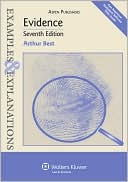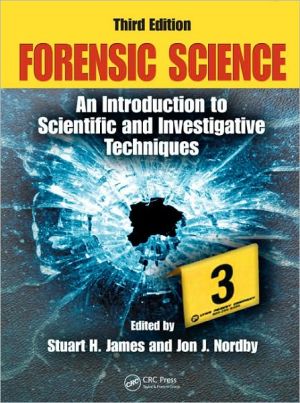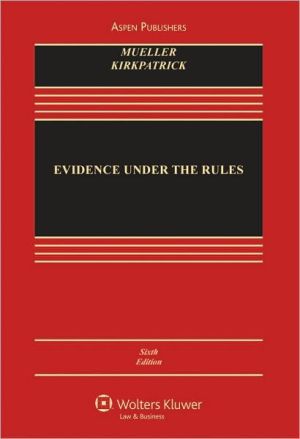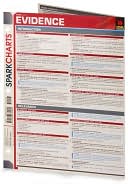Psychological Evaluations for the Courts, Third Edition: A Handbook for Mental Health Professionals and Lawyers
This is the definitive reference and text for both mental health and legal professionals. The authors offer a uniquely comprehensive discussion of the legal and clinical contexts of forensic assessment, along with best-practice guidelines for participating effectively and ethically in a wide range of criminal and civil proceedings. Presented are findings, instruments, and procedures related to criminal and civil competencies, civil commitment, sentencing, personal injury claims,...
Search in google:
This is the definitive reference and text for both mental health and legal professionals. The authors offer a uniquely comprehensive discussion of the legal and clinical contexts of forensic assessment, along with best-practice guidelines for participating effectively and ethically in a wide range of criminal and civil proceedings. Presented are findings, instruments, and procedures related to criminal and civil competencies, civil commitment, sentencing, personal injury claims, antidiscrimination laws, child custody, juvenile justice, and more. Doody Review Services Reviewer:Christopher J. Graver, PhD(Madigan Army Medical Center)Description:Psychologists are frequently called on to provide evaluations, documents, and testimony in legal proceedings. In court, psychological concepts and legal statutes meet. This book provides information about psychological evaluations for the courts that can be understood and appreciated by psychologists and attorneys alike.Purpose:The main purpose is to explore the common, and yet often different, practices of psychologists and legal professionals. This book is intended to provide rough guidelines on the use of psychological evaluations to assist the courts and to potentially rectify some of the differences and inconsistencies.Audience:The target audience includes both mental health and legal professionals. It is written by a small group of faculty from both psychology and law programs at major universities who are experienced in these issues.Features:Whereas the sheer size of this book may seem daunting, it harbors a wealth of information that is easily accessible. The chapters are very practically based, from the introduction to the legal system to the nuts and bolts of running a forensic psychology practice. The major referral questions in criminal forensic psychology are covered (e.g., mental state at the time of the offense and competency to stand trial). Other important forensic topics are also covered, and they include civil commitments, child abuse/neglect and custody, worker's compensation, etc. The book ends with a section on communicating with the courts both in writing and orally, which is very helpful. Each chapter is filled with short subsections that make for quick referencing. Included are tables that summarize key points, as well as sample reports, assessment instruments, and flow charts. Extensive new references have been added to update this third edition. Readers will find a glossary and copious notes at the end along with a complete index.Assessment:This is an exceptional compendium of issues in forensic psychology. From practical topics, such as managing a forensic practice, to salient clinical topics, such as evaluating for competency to stand trial, the critical aspects of forensic psychology are covered laudably. With new case law, changing statutes, and innovative research, this third edition is a worthwhile update.
I. General Considerations1. Law and the Mental Health Professions: An Uneasy Alliance2. An Overview of the Legal System: Sources of Law, the Court System, and the Adjudicative Process3. The Nature and Method of Forensic Assessment4. Constitutional, Common-Law, and Ethical Contours of the Evaluation Process: The Mental Health Professional as Double Agent5. Managing Public and Private Forensic ServicesII. The Criminal Process6. Competency to Stand Trial7. Other Competencies in the Criminal Process8. Mental State at the Time of the Offense9. SentencingIII. Noncriminal Adjudication10. Civil Commitment11. Civil Competencies12. Compensating Mental Injury: Workers' Compensation and Torts13. Federal Antidiscrimination and Entitlement LawsIV. Children and Families14. Juvenile Delinquency15. Child Abuse and Neglect16. Child Custody in Divorce17. Education and HabilitationV. Communicating with the Courts18. Consultation, Report Writing, and Expert Testimony19. Sample Reports20. Glossary
\ Reviewer: Christopher J. Graver, PhD, ABPP-CN(Madigan Healthcare System)\ Description: Psychologists are frequently called on to provide evaluations, documents, and testimony in legal proceedings. In court, psychological concepts and legal statutes meet. This book provides information about psychological evaluations for the courts that can be understood and appreciated by psychologists and attorneys alike.\ Purpose: The main purpose is to explore the common, and yet often different, practices of psychologists and legal professionals. This book is intended to provide rough guidelines on the use of psychological evaluations to assist the courts and to potentially rectify some of the differences and inconsistencies.\ Audience: The target audience includes both mental health and legal professionals. It is written by a small group of faculty from both psychology and law programs at major universities who are experienced in these issues.\ Features: Whereas the sheer size of this book may seem daunting, it harbors a wealth of information that is easily accessible. The chapters are very practically based, from the introduction to the legal system to the nuts and bolts of running a forensic psychology practice. The major referral questions in criminal forensic psychology are covered (e.g., mental state at the time of the offense and competency to stand trial). Other important forensic topics are also covered, and they include civil commitments, child abuse/neglect and custody, worker's compensation, etc. The book ends with a section on communicating with the courts both in writing and orally, which is very helpful. Each chapter is filled with short subsections that make for quick referencing. Included are tables that summarize key points, as well as sample reports, assessment instruments, and flow charts. Extensive new references have been added to update this third edition. Readers will find a glossary and copious notes at the end along with a complete index.\ Assessment: This is an exceptional compendium of issues in forensic psychology. From practical topics, such as managing a forensic practice, to salient clinical topics, such as evaluating for competency to stand trial, the critical aspects of forensic psychology are covered laudably. With new case law, changing statutes, and innovative research, this third edition is a worthwhile update.\ \ \ \ \ From the Publisher"This is the rarest of psychology books--an encyclopedic synthesis that fully serves both academic and practical interests. The sample reports alone are worth the purchase price to a practitioner, and the case law commentary should stimulate much research. During my testimony, I often disagree that any treatise is authoritative, but Psychological Evaluations for the Courts comes closest to getting my nod."--Manfred F. Greiffenstein, PhD, ABPP-CN, Psychological Systems, Inc., Royal Oak, Michigan\ "This outstanding work belongs on every mental health expert’s shelf. It is the best forensic assessment book on the market, and the best available text for preparing for board certification examinations."--Paul R. Lees-Haley, PhD, ABPP, private practice, Huntsville, Alabama\ "Melton et al. have done it again...and again. This third edition upholds the book's undisputed standing as the single, indispensable reference for forensic mental health examiners, students in forensic training programs, and attorneys. Thoroughly revised, it retains concepts of enduring value to the field while incorporating the most important advances in forensic assessment over the last 10 years."--Thomas Grisso, PhD, Department of Psychiatry, University of Massachusetts Medical School\ "One of those rare books for which 'must read' is an understatement. Even more than its predecessors, this edition deserves ovations for combining cutting-edge science, exceptional clinical insight, and outstanding legal acumen. The platinum standard for forensic best practice has just arrived."--John Monahan, PhD, John S. Shannon Distinguished Professor of Law, University of Virginia\ "As good as the previous editions were, this third edition is even better. Its lucid exposition of legal issues, combined with sophisticated discussion of assessment approaches and ethical concerns, make it an invaluable companion for forensic mental health professionals and trainees of all disciplines. One of the few indispensable references for forensic mental health practice."--Paul S. Appelbaum, MD, Elizabeth K. Dollard Professor of Psychiatry, Medicine, and Law, Columbia University\ "The release of the third edition of Psychological Evaluations for the Courts will ensure it remains the authoritative reference in the field for years to come. This is a truly indispensable volume that both embodies and establishes the state of the discipline. Its breadth of coverage is unmatched by any other book, and each topic is analyzed critically and in exacting detail. The quality of psycholegal scholarship is, quite simply, awesome. For educators, this book can serve as the single required text for virtually any graduate or postgraduate training program in forensic psychology. It is also an excellent practice guide for those already working in the field."--Stephen D. Hart, PhD, Department of Psychology, Simon Fraser University, Canada\ \ \ \ International Journal of Offender Therapy and Comparative Criminology"An authoritative text in the field of forensic psychology."--International Journal of Offender Therapy and Comparative Criminology\ \ \ \ \ The Master's Advocate"A great resource for practicing psychologists and graduate students preparing for mental health practice....This is a highly recommended resource for mental health professionals who will inevitably be in contact with the legal system."--The Master's Advocate\ \ \ \ \ National Psychologist"This encyclopedic text continues to stand out as an indispensable and authoritative reference work....One of the text's enduring strengths is its dual emphasis on ethics and empiricism....This text serves as a wide-ranging reference tool and a mechanism to survey the broader field, including everything from expert testimony admissibility and outpatient commitment to special education and anti-discrimination laws...Belongs on the bookshelf of every forensic psychology practitioner and mental health lawyer."--National Psychologist\ \ \ \ \ Juvenile and Family Court Journal"Offers a comprehensive discussion of forensic assessment along with best practice guidelines for psychological evaluations in a wide range of criminal and civil proceedings."--Juvenile and Family Court Journal\ \ \ \ \ Journal of Psychiatric Practice"If you perform forensic evaluations for a living, you need this book."--Journal of Psychiatric Practice\ \
